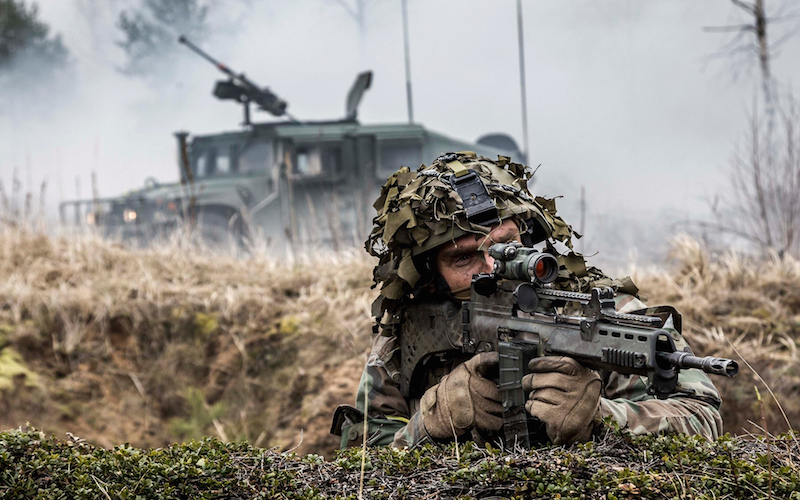
U.S. Prepositioning in the Baltics: Heavy Metal Politics and Hostages to Fortune
There is much about the present Russo-Western confrontation that is symbolic, even when it comes to the tanks rumbling around the Baltic plains or the Russian aircraft screaming past and sometimes into NATO airspace. Essentially, it is a combination of the macho posture of alpha male animals, trying to overawe their rival by any means short of the murderous, and the stately diplomatic dance of hint, demarche and denunciation, in heavy metal form.
Consider, for example, the likely deployment of heavy equipment in the Baltic states, a pre-deployment of enough kit for a full brigade. More than anything else, this is a piece of theatre intended to reassure the Balts that they would not be left high and dry if the big, bad Russians ever invaded, and warn Moscow that Washington is indeed serious about its obligations to its NATO allies.
In military terms, after all, it is harder to see this as serious. Why? All this hardware is pretty pointless without (a) the 5,000 or soldiers to go with it and (b) without the time to take the tanks and other pieces of kit out of storage and get them ready for action — even at the most basic level, they need fuel, ammunition and other consumables.
Presumably if — and I don’t believe this would ever happen — the Russians ever were to invade the Baltic states, they would do so through a surprise blitzkrieg, as one of their massive military “exercises” on the borders suddenly reveals itself to be an intervention force. I can’t see Moscow feeling the need to give NATO fair warning and notice!
The sad truth is that the Baltic states are pretty much impossible to defend in purely military terms. The borders are open, the terrain is pretty flat, the settlements small. That in no way minimizes the determination of the Balts, and the Russians would have to expect subsequent bitter guerrilla warfare as patriots fight back from the woods or in the cities, but Moscow’s ability to take the region in the first instant is hard to question.
The corollary? It is that, in purely military terms, Washington is prepositioning a cache of modern weapons for the Russians to capture.
Of course, the point is that this is not what anyone expects to happen: if — again, let’s stress that if — Russia chose to step up its aggression against the Baltic states, it is almost certain to be through indirect, covert or deniable means, not a storm of armour and airpower. The calculation in Washington is that at least by pretending to make a serious military commitment to the Baltic states (and one which makes it certain and obvious that any Russian offensive will bring it into face-to-face contact with US soldiers), it deters Moscow from any such moves. And so we have another demonstration of the many ways in which if not war but military force can be the instrument for politics by other means.
This article was originally posted in In Moscow’s Shadows.

